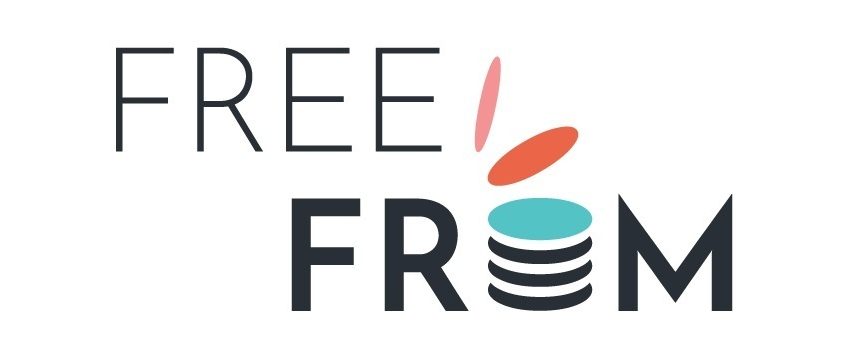Intimate partner violence is a systemic economic issue that demands full societal accountability, starting with our federal government. With 1 in 4 cis-women and nearly 1 in 2 trans folks still experiencing IPV in the U.S., it’s clear that the President and Congress are not doing enough. The lack of infrastructure in place to support survivors has become even more apparent as COVID-19 has disproportionately impacted survivors across the country.
Last year, we asked survivors what they needed to stay safe during COVID-19 and beyond. We’ve used what we learned directly from 1300+ survivors to develop a set of comprehensive federal policy priorities that, when passed, will support survivors across the U.S. in building the financial security they need to stay safe during and after the pandemic.
We are very encouraged that the Biden / Harris Administration’s Plan to End Violence Against Women includes some of our below proposals. FreeFrom is committed to doing the work necessary to ensure that the Administration makes good on these promises. However, at FreeFrom, we understand that gender-based and intimate partner violence impact folks across the gender spectrum, not just cis-women. We urge the Biden / Harris Administration to acknowledge this reality in their plan.
We also urge the Administration and every member of Congress to pass all of our recommended policies and join us in prioritizing financial security and long-term safety for survivors and their families:
Policy Recommendation 1: Provide survivors with tailored COVID-19 relief
- Create enhanced fraud protections for survivor stimulus payments
- Require institutions to cash stimulus checks without fines or fees
- Protect stimulus payments from private debtors
- Create Survivor Safety Grants program, earmarking funds for direct unrestricted cash grants for survivors
Policy Recommendation 2: Address economic abuse in VAWA
- Expand the definition of intimate partner violence to include economic abuse
- Divest funding from law enforcement response and reinvest in economic security programs for survivors
- Require that all VAWA grants include enough funding to pay service providers a living wage
- Fund direct unrestricted cash assistance for survivors
- Remove tort restrictions on grants funding legal assistance for survivors
Policy Recommendation 3: Protect survivors while they bank
- Pass the Survivor Safe Banking Act (modeled after the Senior Safe Act)
- The Act will require banks to:
- Report suspected economic abuse to federal authorities for data analysis and publication
- Train management and staff in how to prevent, detect, and respond to economic abuse
- Designate an internal team to handle survivor accounts
- Implement enhanced privacy and anti-fraud protections on survivor accounts
- Allow survivors to open accounts with ID and address alternatives
- The Act will also provide banks with immunity from civil and regulatory liability related to their compliance with the Act
Policy Recommendation 4: Provide effective relief for coerced and fraudulent debt
- Amend the Fair Credit Reporting Act and Fair and Accurate Credit Transaction Act by:
- Expanding the definition of “identity theft” to include IPV-related coerced and fraudulent debt
- Remove police report requirements to access available relief
- Require credit reporting agencies to be trained in economic abuse
- Create an economic abuse fraud alert
- Expand the Equal Credit Opportunity Act to prohibit discrimination by creditors on the basis of someone’s status as a survivor of IPV / economic abuse
Policy Recommendation 5: Create paid and protected leave for survivors
- Expand the Family Medical Leave Act to provide paid and protected leave for survivors:
- Add IPV and economic abuse as grounds for leave under the Act
- Require employers to provide at least 10 days of paid and protected leave to deal with the consequences of abuse without depleting accrued sick or vacation days
- Prohibit discrimination and retaliation against employees based on their status as a survivor or their use of the leave
Policy Recommendation 6: Compensate survivors for the harm they’ve experienced
- Amend the Victims of Crime Act to better support survivors by:
- Making compensation available for survivors who have chosen not to involve the police
- Extending or removing application deadlines
- Lifting restrictions that disqualify survivors with criminal records from receiving compensation
- Expand covered costs to include coerced and fraudulent debt relief, attorneys’ fees, property damage, and childcare
- Earmark funds for direct cash assistance for survivor applicants
Policy Recommendation 7: Support and protect survivors through the tax code
- Create a refundable Survivor Tax Credit
- Create a refundable Coerced and Fraudulent Debt Tax Credit
- Designate an Economic Abuse Specialized Unit within the IRS
- Create a standardized Economic Abuse Affidavit Form
- Create Economic Abuse Survivor Relief
Policy Recommendation 8: Increase access to justice through the courts
- Create sanctions against harm-doers who have committed litigation abuse
- Create sanctions against attorneys that facilitate and / or participate in litigation abuse
- Require that judges, attorneys, and court staff be trained in economic abuse, including litigation abuse
- Earmark funding for attorneys to provide pro bono legal representation to survivors in civil matters

